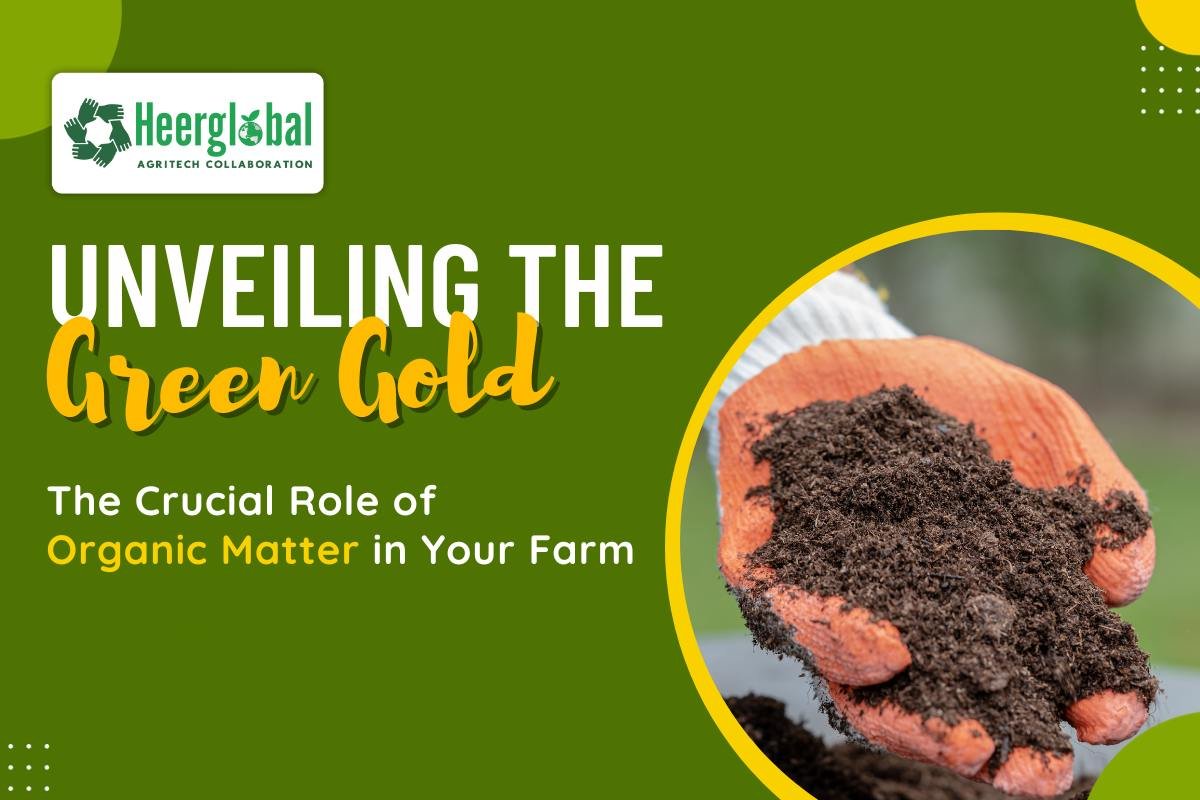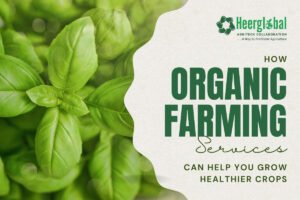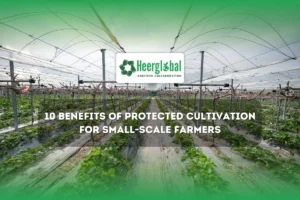Unveiling the Green Gold: The Crucial Role of Organic Matter in Your Farm
-
by
heerglobal
Dear farmers, have you ever wondered why some soils seem to have a magical touch, making crops thrive effortlessly? The secret lies in something we call “organic matter.” It’s not just a fancy term; it’s the lifeblood of your soil. Let’s take a journey into the world of organic matter, understanding its role and discovering why it’s the farmer’s best friend.
What is Organic Matter?
Organic matter is the precious residue of living organisms – plants, animals, and tiny microbes – that once called your soil home. It’s the decomposed remains of crop residues, manure, and other natural materials that work wonders beneath the surface.
The Role of Organic Matter:
Soil Structure Engineer:
- Imagine your soil as a cozy home for your crops. Organic matter plays the role of an architect, creating a structure that holds water, allows air to circulate, and gives roots a comfy place to spread.
Nutrient Treasure Chest:
- Organic matter is like a nutrient bank for your plants. It stores essential elements like nitrogen, phosphorus, and potassium, releasing them slowly to keep your crops well-fed throughout the season.
Water Manager:
- In times of drought or heavy rain, organic matter becomes your soil’s water manager. It acts like a sponge, holding onto water in dry times and preventing runoff during heavy rains.
Microbial Community Hub:
- Beneath the surface, a bustling community of microbes relies on organic matter as their food source. These microscopic workers break down organic matter, releasing nutrients in forms that plants can readily use.
Importance of Organic Matter:
Boosts Soil Fertility:
- More organic matter means more nutrients for your crops. It’s like giving your soil a power-packed smoothie, making it nutrient-rich and ready to support healthy plant growth.
Improves Soil Texture:
- Have you ever worked with soil that feels like chocolate cake? That’s the magic of organic matter. It transforms heavy clay into loamy goodness, making it easier to plant and cultivate.
Enhances Water Retention:
- Organic matter acts as a water reservoir, preventing your soil from turning into a desert during dry spells. It retains moisture, ensuring your crops have a constant supply of water.
Fights Erosion:
- When raindrops decide to dance on your fields, organic matter becomes the soil’s umbrella. It protects against erosion, keeping your precious topsoil right where it belongs.
How to Increase Organic Matter:
Cover Crops:
- Plant cover crops like legumes or grasses during the off-season. They not only protect your soil but also contribute organic matter when you plow them back in.
Crop Residue Management:
- Leave crop residues on your fields after harvest. They’ll decompose over time, adding organic matter to your soil buffet.
Compost Magic:
- Create your own organic matter powerhouse by composting kitchen scraps, manure, and other plant materials. Spread this “black gold” on your fields for a nutrient boost.
Reduced Tillage:
- Minimize tillage to preserve organic matter. Excessive plowing can speed up its breakdown, so let it work its magic undisturbed.
Conclusion:
Dear farmers, organic matter is not just a buzzword; it’s the key to unlocking the full potential of your soil. By nurturing this green gold, you’re not just cultivating crops; you’re building a thriving ecosystem beneath your feet. So, here’s to the unsung hero of your farm – organic matter, the silent partner in your journey to bountiful harvests.




